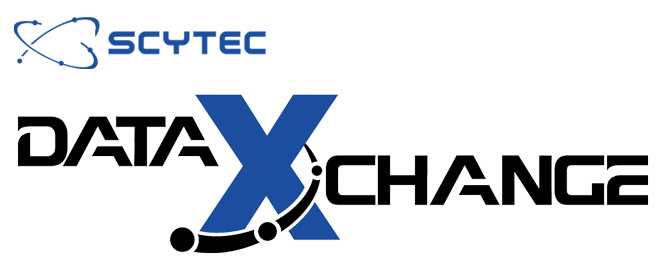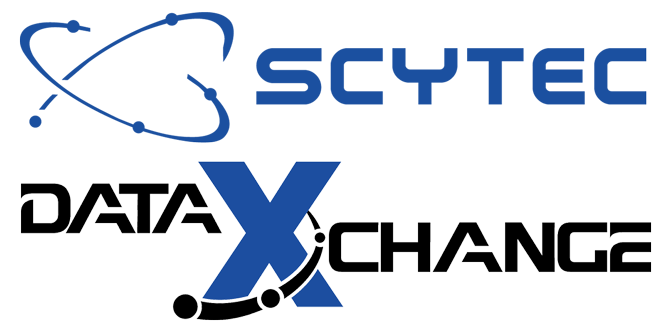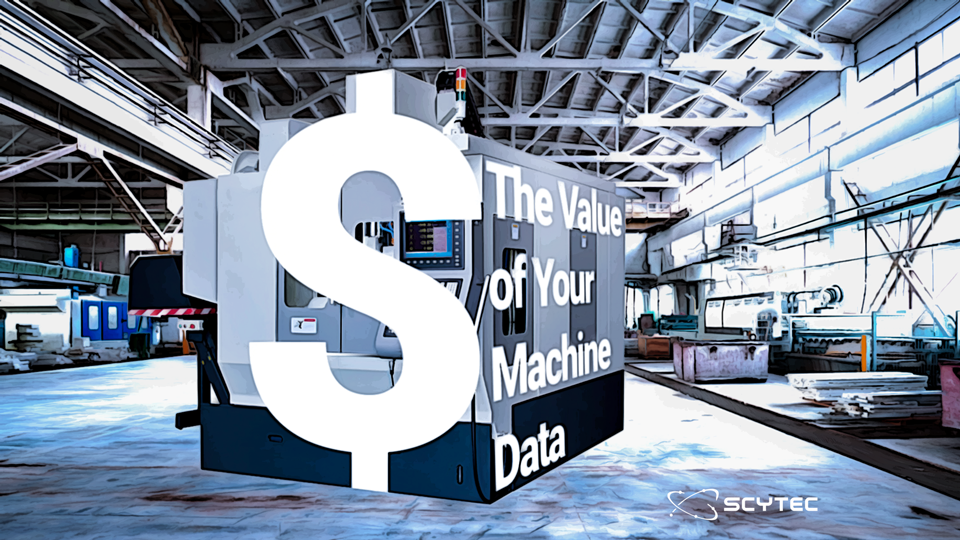The Value of Collected Machine Data
The advent of IIoT (Industrial Internet of Things) and smart factory technologies has marked a new era where manufacturing equipment can be connected and continuously generate and collect data based on its current and historical status as well as operator efficiency through a connected smart factory platform like Scytec DataXchange. This gathered data offers manufacturing organizations crucial insights that can drive operational optimization, as well as discovering hidden successes you were previously unaware of. In this thought piece from Scytec, we will explore the value of your machine data, how to leverage it effectively, and the challenges involved.
Machine data refers to information produced by machines via collected information off machine control type protocols such as Fanuc FOCAS and Okuma THINC, and sensors like current, vibrational and humidity among others. This valuable data is gathered continuously from various equipment and devices, containing vital details about machine performance and usage patterns. Scytec DataXchange gathers this information and allocates it in what would be an uncategorized mess of information that you would get from a rudimentary machine monitoring platform and arranges it in visually pleasing manufacturing charts and dashboards ensuring the data provides value that promises to evolve your shop floor and see and increase in production performance.
Types of Machine Data
Machine data comes in several forms, such as operational and performance data. Operational data includes machine status both historical and real-time, for example if a machine is currently manufacturing a part, its real-time status would be determined as “in cycle”. Performance data reflects how machines perform, including output volume, cycle time and how many scrap parts were created compared to the total number of parts produced. What separates the Scytec DataXchange machine monitoring platform from more rudimentary types of machine monitoring products is that with DataXchange everything presented is 100 percent user defined and demanded. A Scytec motto concerning DataXchange’s use for your collected machine data is we make the presented data “meaningful to your production environment”.
Collecting Machine Data and Its Benefits
Machine data can be sourced from industrial equipment like a CNC machine and IIoT devices that can connect to a wider variety of machinery and pull a rich set of data. Industrial machines like Vertical Mills or a Lathe produce large amounts of data that can be used to enhance performance and efficiency by seeing historical and real time information that can pinpoint bottlenecks and expose productivity weaknesses. Harnessing machine data offers numerous benefits, including identifying inefficiencies, facilitating predictive maintenance, enhancing decision-making, and improving customer experiences by reporting certain performance issues as well as tracking the necessary KPIs. By analyzing this data, organizations can uncover patterns and trends to inform key decisions. Data collection and storage in a centralized system is critical, followed by processing and visualization, then the display of the collected machine data so that the data is made meaningful to your production environment. With tools like dashboards, historical and real time reports, organizations can gain deeper insights and make data-driven decisions. Machine data has broad applications across industries such as aerospace, automotive, defense, manufacturing, and agriculture. For example, in manufacturing, collected machine data helps streamline production, increase OEE (overall equipment effectiveness), and reduce machine downtime.
Challenges of the Modern Manufacturing World
Despite the advantages that collected machine data gives the modern manufacturing landscape, there are challenges that make it even more necessary than ever to stay competitive. Skill and labor shortages, system integration difficulties into an already busy workday, and high implementation costs that do not equal a fair return on investment are some of the often-cited issues that affect current day manufacturing. To address these challenges, Scytec DataXchange established a clear objective from its inception for manufacturers to be able to implement a robust data governance framework by investing in an appropriate technology at a low cost with a team of professionals looking to assist those who want to evolve their shop floor.
To summarize this manufacturing industry thought piece, collected machine data offers organizations the opportunity to gain valuable insights and enhance their operations. By leveraging this data effectively, businesses can identify inefficiencies, predict maintenance needs, improve decision-making, and elevate customer satisfaction. Overcoming the challenges of machine data requires adopting best practices, investing in technology, and fostering employee development.


